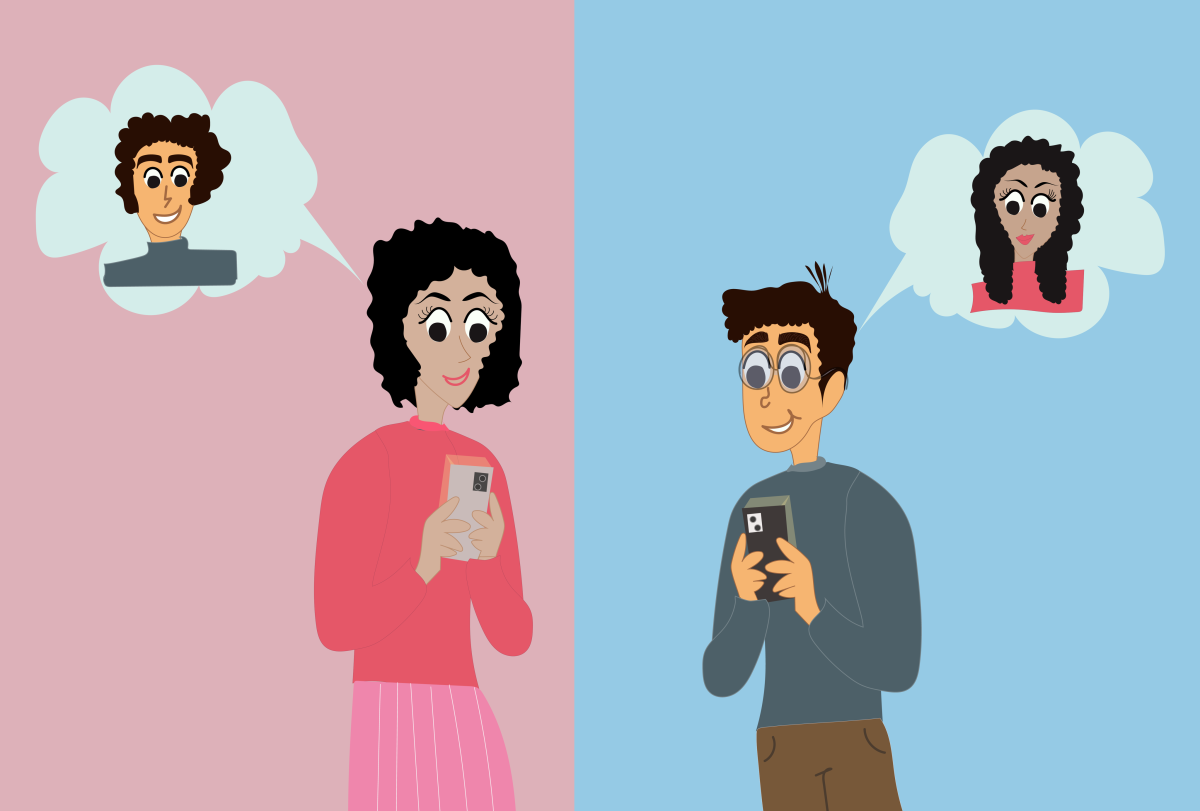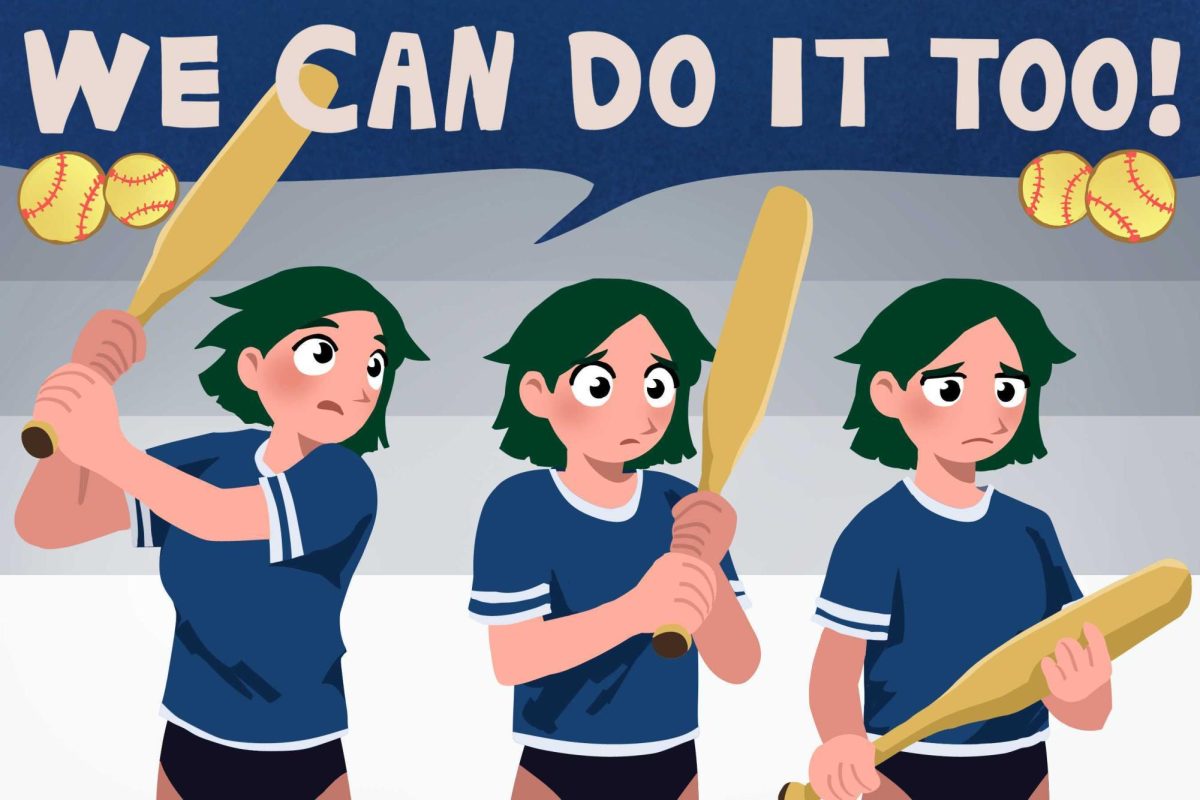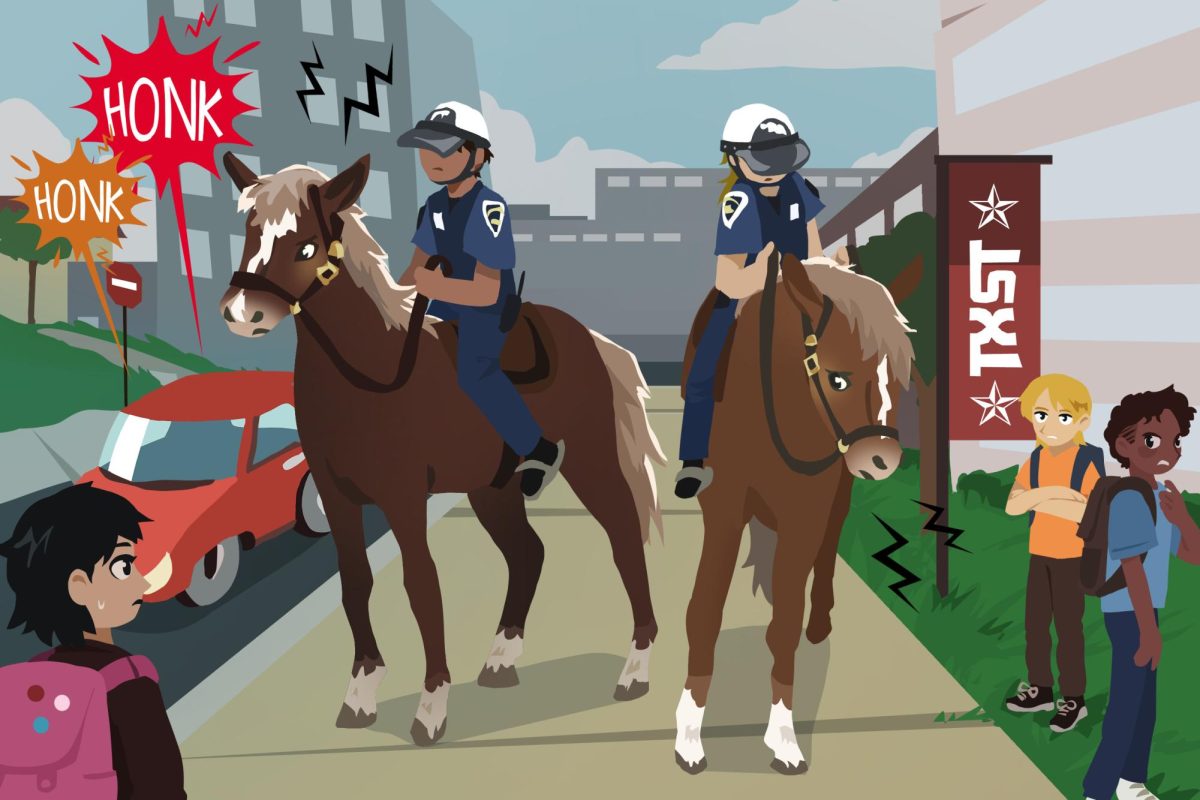As students enjoy their summer break relaxing, working, learning or traveling, it can become a challenge to keep in touch with others. Students may experience loneliness during the long break and struggle to feel connected to those around them. However, with the help of technology, students can form new relationships faster than ever.
With the technology available today, online dating has become the most common way for individuals to meet their partners. The COVID-19 pandemic caused an increase in individuals partaking in online dating, and users are still utilizing the applications. In April 2021, nearly 70% of individuals stated they continued to use dating apps after the COVID-19 pandemic.
Nearly 30% of adults in the U.S. claimed they had used a dating app or website, while 48% of Americans within ages 18 to 29 stated they had tried online dating.
Despite the convenience of online dating, dating apps negatively impact one’s ability to form meaningful relationships which, in turn, can harm their mental health. In addition, users of these dating apps face the possibility of being put in unsafe situations with those they meet on the app.
The fast-paced environment created within dating apps can be extremely harmful to those looking to form meaningful relationships. With the added pressure to find a partner, online dating profiles are under extreme scrutiny. Rather than getting to know an individual face-to-face, users create profiles to showcase their interests and display their physical appearance.
The apps are designed to narrow their selection from a large group of people to those they are interested in, which can cause users to immediately look for negative attributes that would cause them to lose interest rather than focusing on positive qualities.
Dating apps focus heavily on physical appearances when approaching a potential connection. Rather than starting a conversation with one another, users are initially presented with a dating profile consisting of preselected images and a short description of their interests. With the rapid speed at which profiles are typically examined, individuals could overlook compatible matches solely based on their physical appearance. These apps aid in creating a negative mindset when approaching a possible match.
This design of online dating apps can harm the user’s mental health. With the overwhelming number of profiles accessible via dating apps, it could lead to individuals facing frequent rejection. With dating apps allowing users to view profiles constantly, the boundary separating individuals and the limit of rejection has disappeared. These apps can lower self-esteem and threaten one’s perception of self-worth. Dating apps can trigger those with and without existing mental illnesses by provoking emotional and psychological distress.
Online dating can be hazardous for college students who may not understand the risks of dating apps, such as catfishing. Catfishing is the term used to describe the act of someone creating a virtual fake identity and targeting a victim for personal gain. Dating app users risk catfishing due to the high number of fake accounts across platforms.
The Better Business Bureau reported that one in seven online dating profiles might be fake accounts. In addition, scammers often use dating apps to “connect” with individuals and manipulate them for their financial gain. Over 23,000 people claimed to be victims of catfishing in 2020, and it was reported that scammers were sent over $600 million. With the significant financial responsibilities accompanying a college education, the possibility of scammers taking advantage of students is highly problematic.
Connecting with a stranger on the internet can be extremely risky and lead to unsafe scenarios. A survey from Pew Research revealed that 60% of women on dating apps were contacted even after stating they were not interested in the other party. Additionally, 57% of women claimed they had been sent a “sexually explicit message,” and 19% of young women reported they had been threatened to be physically harmed while using a dating app. With college students frequently using dating apps, students must remain cautious and ensure they are being safe when using dating apps.
While there are many downsides related to dating app usage, the benefits of online dating are also present. These apps make it relatively easy to meet multiple people in a short amount of time. The dating apps allow you to connect virtually with other individuals, which can be helpful for shy individuals and those who deal with social anxiety. The ability to create a personalized profile to fit your beliefs and interests can assist in developing new connections and meeting others who are like-minded.
However, the apps should be used cautiously, and students need to understand the negative aspects of online dating.
– Kadence Cobb is a journalism freshman
The University Star welcomes Letters to the Editor from its readers. All submissions are reviewed and considered by the Editor-in-Chief and Opinion Editor for publication. Not all letters are guaranteed for publication.
Opinion: The dating apps dilemma
July 19, 2022
Donate to The University Star
Your donation will support the student journalists of Texas State University. Your contribution will allow us to purchase equipment and cover our annual website hosting costs.

























